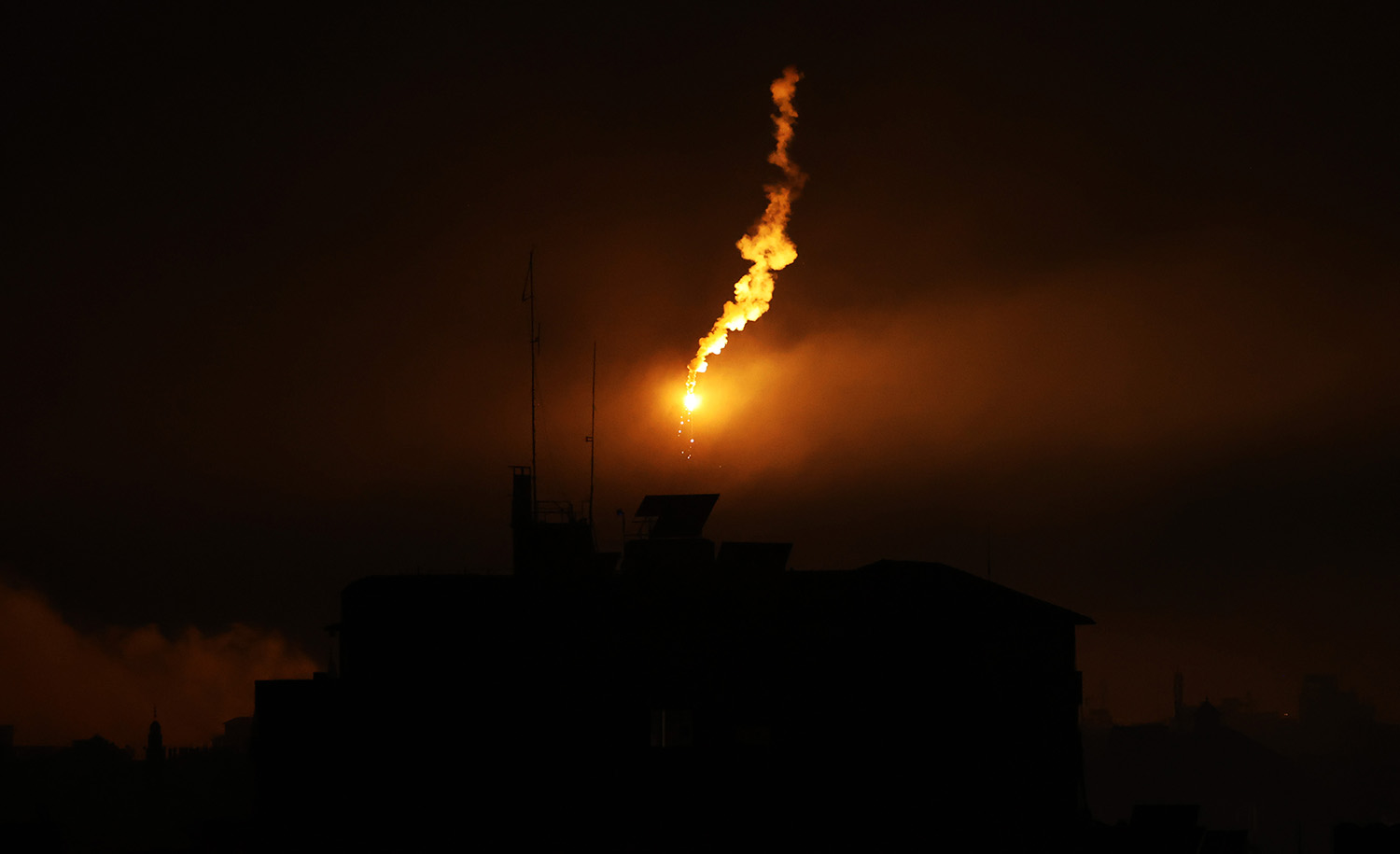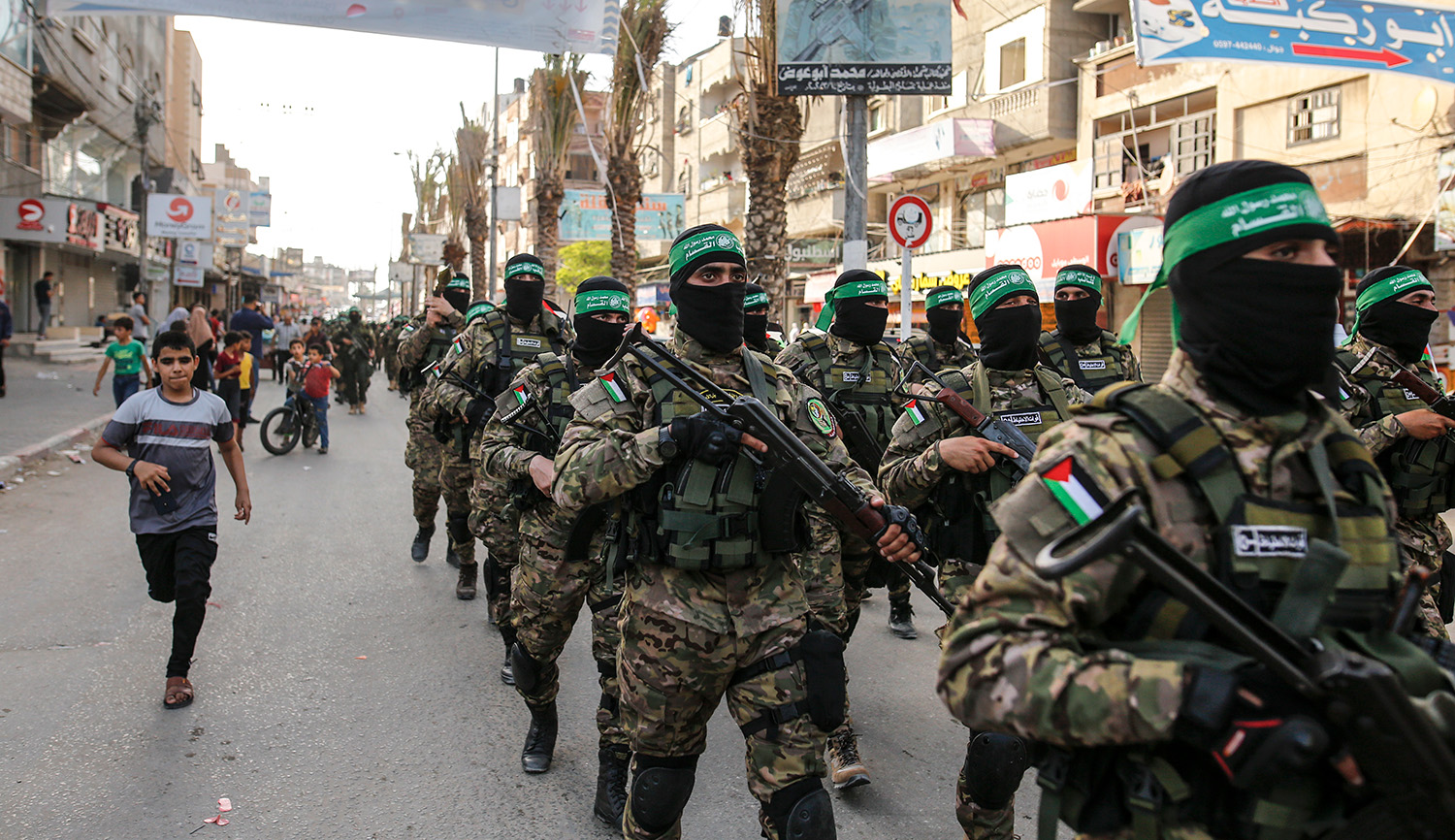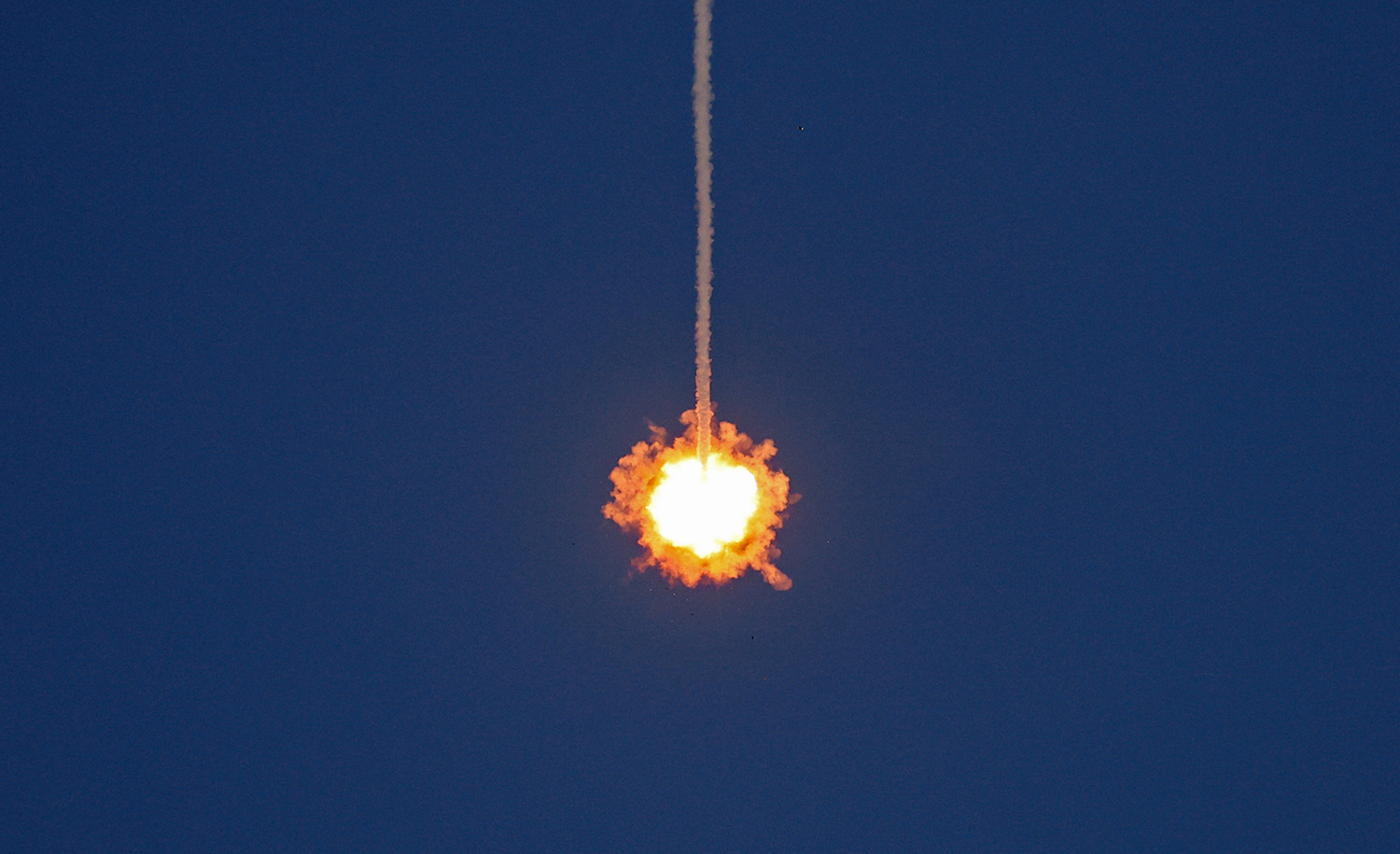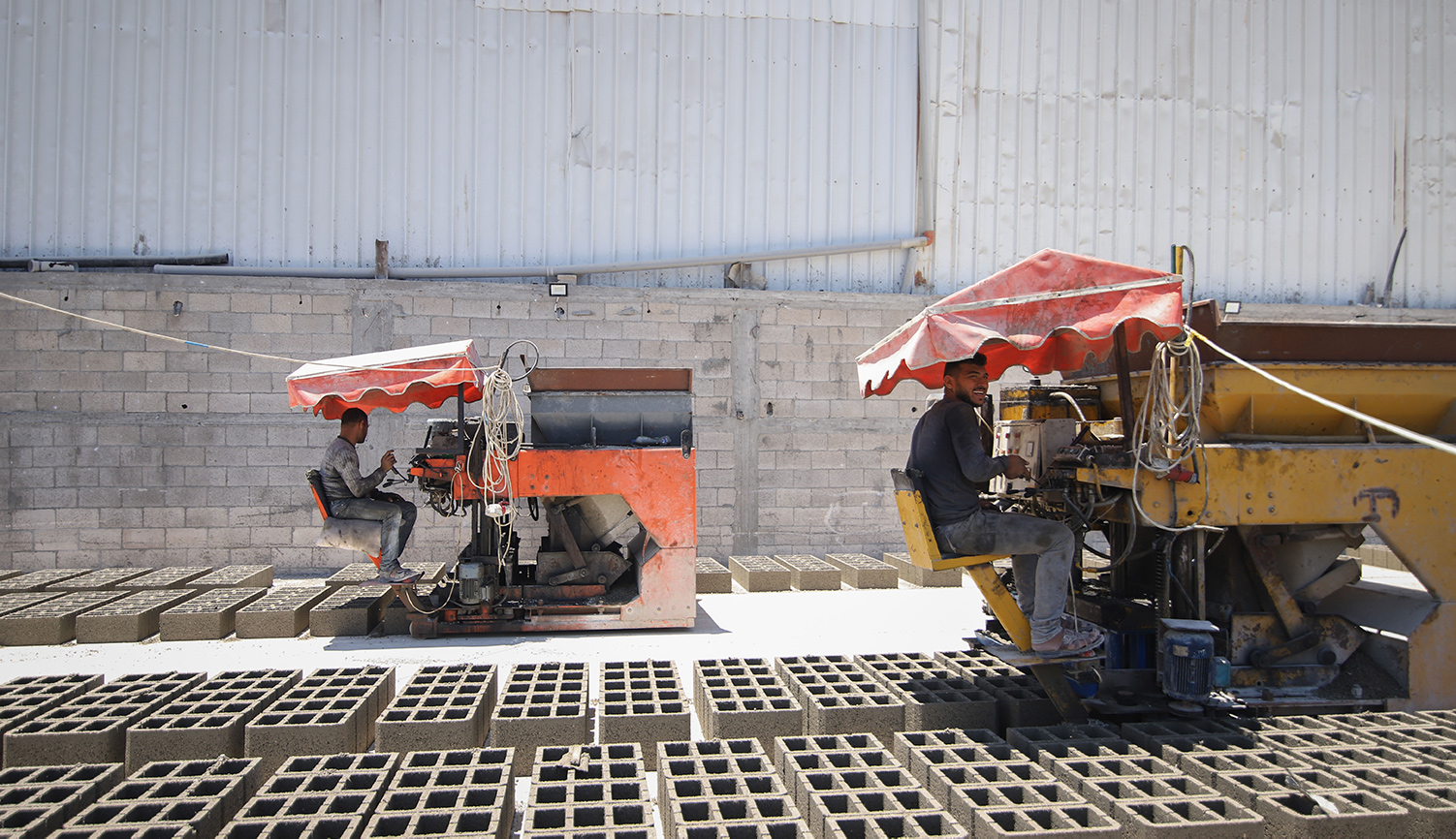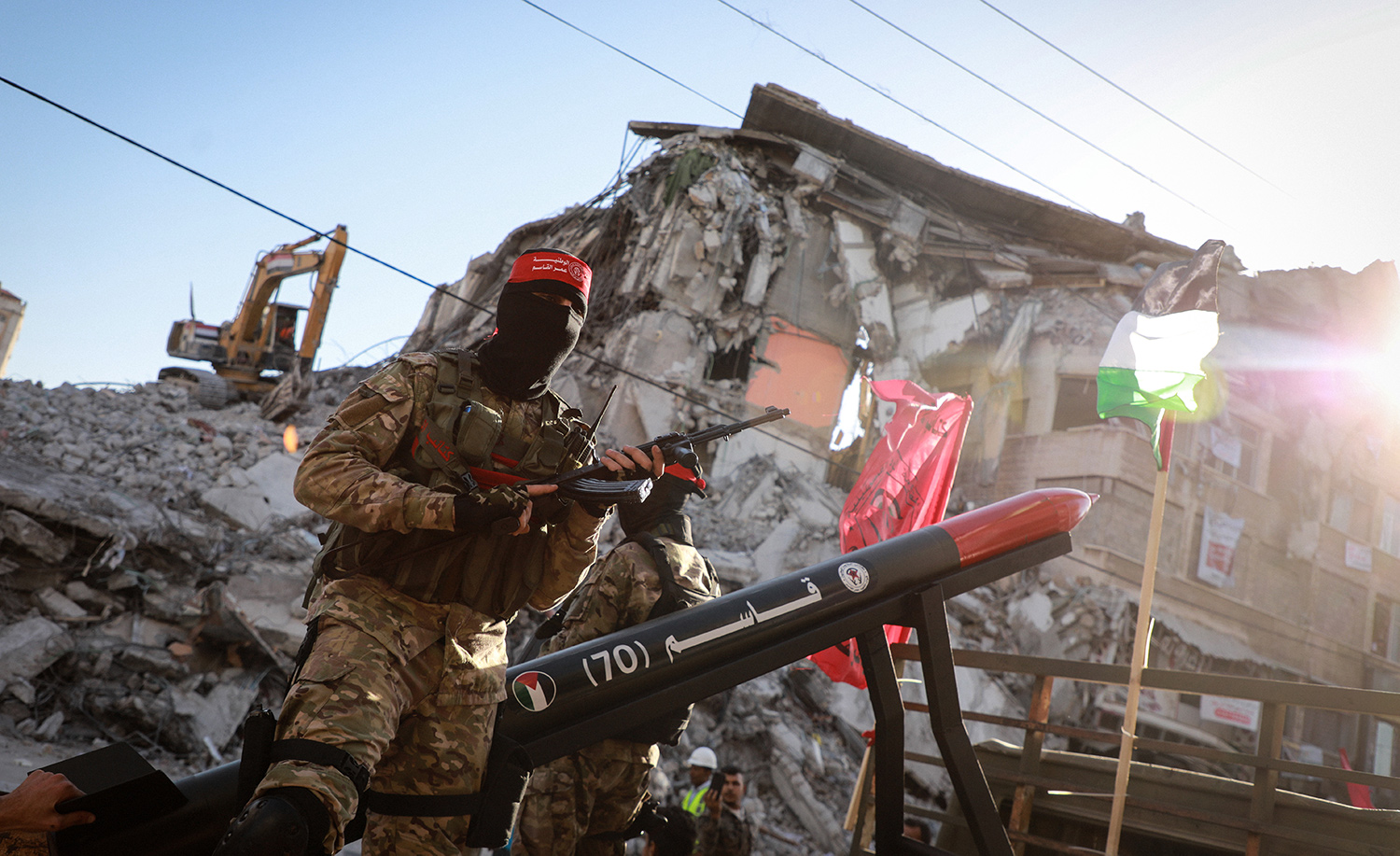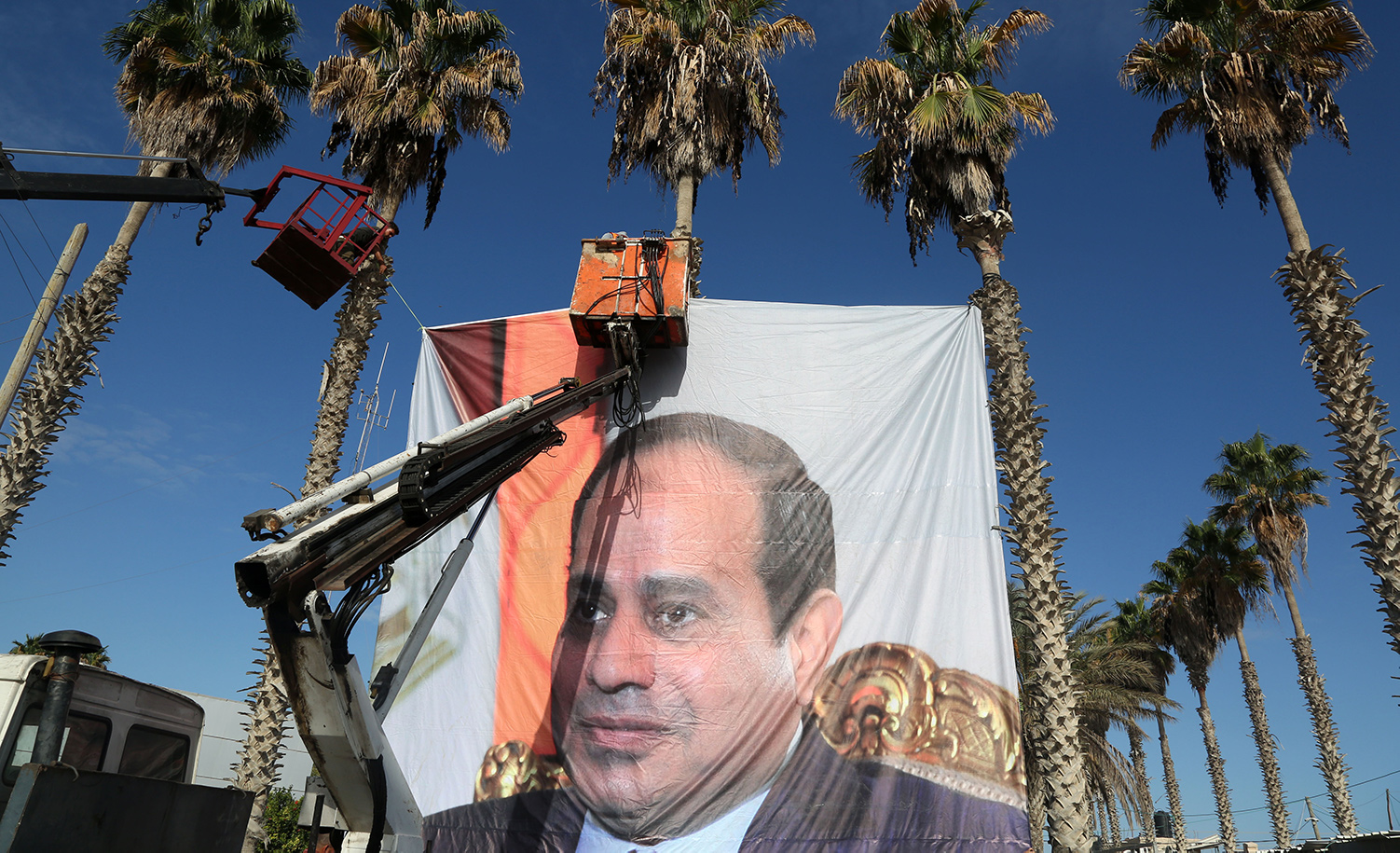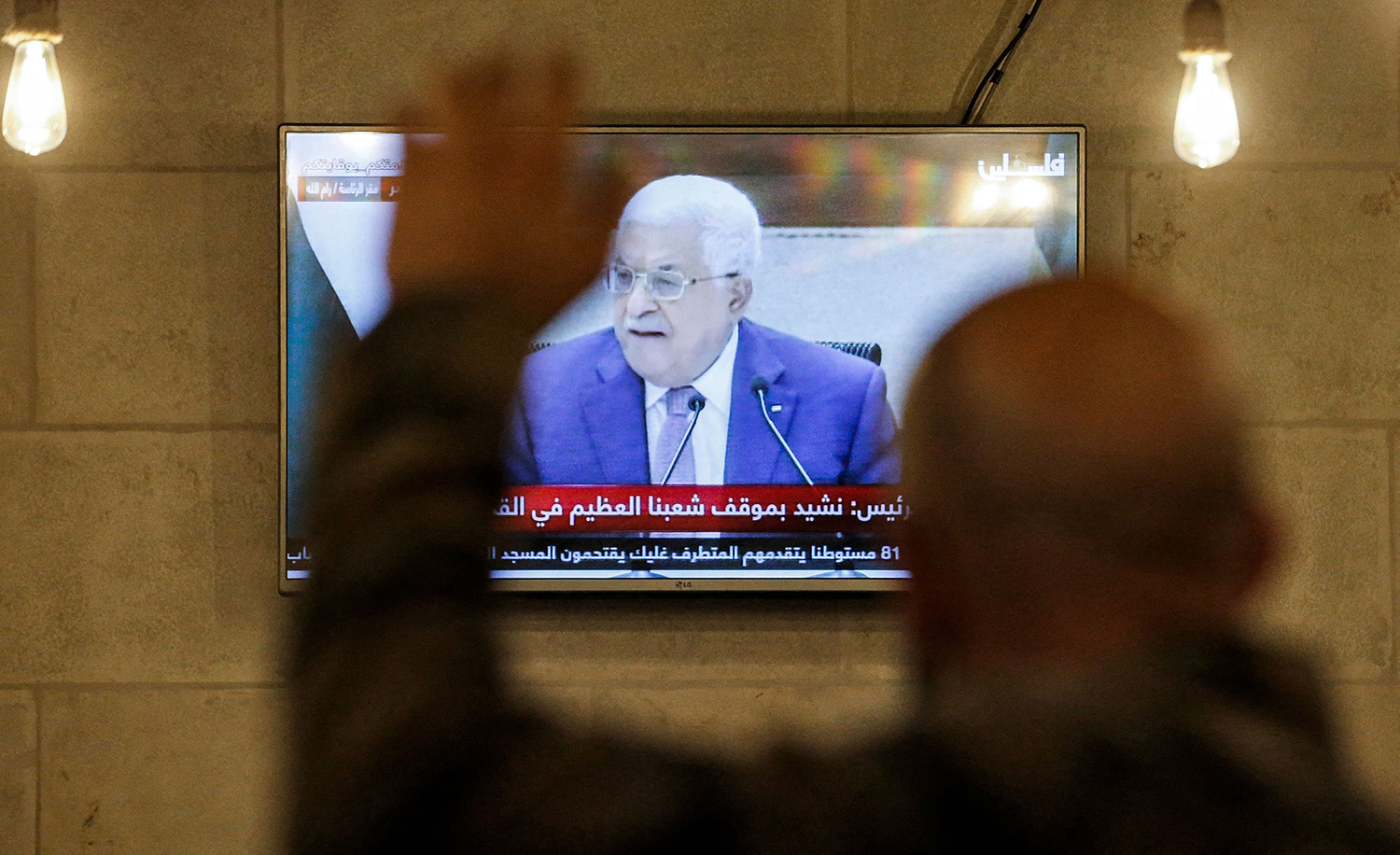Gaza
On both sides of the border, new security plans are being formed.
Watch three leading analysts talk about the Palestinian predicament, and what role Israel’s war against Hamas could ultimately play.
A retired IDF brigadier general offers a preliminary retrospective on what happened in the three weeks before Israel’s ground forces moved into Gaza.
Heinous violence meant to force everyone to choose sides has long been the recourse of a radical minority that fears time is not on its side.
A war in Gaza right now is a war on Hamas’s timeline and initiative. Israel should consider seizing the initiative by making unpredictable moves elsewhere first.
If they see Israel as weak and not a dependable ally, the likes of Saudi Arabia, Jordan, and Egypt would have little choice but to align with Iran.
A photo revealed the Beirut nerve center for anti-Israel terror.
It has less to do with ideological conviction than the fact that settlers anchor the IDF in place.
Israel’s actions in the recent Gaza flare-up show just how valuable self-correction can be. On every dimension, its performance was at least slightly improved.
To give Gazans a stake in their economic development, Israel could encircle Gaza with economic opportunities just beyond its borders—and thus just outside the terrorists’ control.
There are four possibilities for the Gaza Strip’s future, from continued decline to Egypt stepping in. Which is most likely?
There are plenty of nice plans for Gaza, but none that will change the core truth: Hamas will continue to seek Israel’s destruction, and Israel will continue to defend itself.
As long as Gaza is a problem for Israel, Egypt can play an important role as a mediator, prove its usefulness as an ally to the U.S., and avoid its slide into irrelevance.
Palestinians deserve a chance to elect a decent government without corruption or terror. Political reform can make Gaza better, and Israel more secure. Here’s how it could happen.


